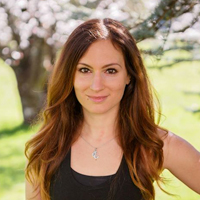
You know when you read something that slaps you in the face then makes you question everything you’re doing?
I read inspiring quotes and little nuggets of wisdom every day in my travels across the internet and on social media, but this article that I came across earlier this week flipped some kind of internal switch and inflicted the following emotions when I read it, in no particular order: sorrow, despair, excitement, ambition, happiness and anxiety.
By now we’re all familiar with the problem of busyness, not being present for day-to-day life and multi-tasking. Not only does it leave us stressed, tired and unhappy, but also distracts us from living our real lives. Lives in which we only have a short time to experience.
According to the author of the article, Maria Popova, we have “a refusal to recognize that ‘busy is a decision’ and that presence is infinitely more rewarding than productivity.” She goes on the explain that she’s concerned “being productive is the surest way to lull ourselves into a trance of passivity and busyness the greatest distraction from living, as we coast through our lives day after day, showing up for our obligations but being absent from our selves, mistaking the doing for the being.”
I agree.
The face-slapping/emotional roller coaster happened when I read the following quote in the article, from a 2,000-year-old treatise by Roman philosopher Seneca called On the Shortness of Life:
“It is not that we have a short time to live, but that we waste a lot of it. Life is long enough, and a sufficiently generous amount has been given to us for the highest achievements if it were all well invested. But when it is wasted in heedless luxury and spent on no good activity, we are forced at last by death’s final constraint to realize that it has passed away before we knew it was passing. So it is: we are not given a short life but we make it short, and we are not ill-supplied but wasteful of it… Life is long if you know how to use it.”
What am I doing with my life? Am I really making the best use of my time? Why am I wasting time being anxious and worried about things I can’t control—like the future?
Of course we can’t all go frolicking barefoot through luscious green meadows all day, pausing only to have a picnic and stare up at the clouds while pondering the meaning of life. We have to earn a living to cover our basic human necessities like shelter and food. But just how much exactly do we need to live a fulfilling life?
We work our butts off 40-ish hours a week doing things that don’t necessarily bring us joy just to live in the nice house with the backyard, drive the sporty SUV with leather seats, eat out at restaurants three nights a week and wear those flattering Lululemon yoga pants while running errands around town. Do nice cars, houses, experiences and clothing bring us joy? Sure they can. And although I’d argue spending money on experiences, like going on vacation or to a concert with friends, is a far better investment than nice cars and clothes, what’s the tradeoff for those things?
According to Seneca, “People are frugal in guarding their personal property; but as soon as it comes to squandering time they are most wasteful of the one thing in which it is right to be stingy.” I’m not necessarily saying you must work less or quit your high-paying-but-unenjoyable job and pursue your passions—as financial stress is just as harmful to your health as busyness is—but to consider how you spend the rest of your time. Your internal time. The times when you’ve got a moment to spare and you start making mental lists instead of savouring a moment of peace. Or worrying about that project at work instead of taking a deep breath. Or grabbing your phone and scrolling through your Facebook/Instagram/Twitter feed even though you just looked at it 10 minutes ago instead of watching the rain fall.
I know I’m guilty of this. When I have a night to myself, I either open my to-do list on my MacBook and start working on the next thing I feel I need to do to improve my blog or side business, or spend a good hour or two randomly clicking around the internet and checking social feeds. I don’t even have cable or Netflix because I know I’ll never watch it. I always feel like I need to be doing something productive when I have downtime. And I feel guilty if I’m not.
Because writing and personal training are my passion projects, I’m not going to drop them just to get an hour of time back in my day to sit quietly and breathe. But I know I could manage the time I do spend on those projects more efficiently, such as by setting aside time blocks each week and not multi-tasking during said time blocks. I’m also starting to become more aware of negative thoughts patterns that spiral into episodes of anxiety thanks to practicing cognitive behavioral therapy techniques, and spend less time needlessly worrying because of it. I’m learning that using up your mental space to worry and stress about things you can’t control is also a waste of time and life.
As Popova points out, “Protecting our time is essential self-care, and the opposite a dangerous form of self-neglect.” So while we might not all be able to quit our jobs, travel the world, earn a living doing what we love and spend hours a day in a state of post-yoga bliss, we can take small steps to taking back our precious time.
Here are some examples of small steps you can take if you also find yourself getting too distracted with busyness to fully enjoy your life:
1. Set aside at least an hour each day solely for enjoyment. Read a book, watch a movie with your spouse, play with your children, walk your dog, or participate in a hobby, such as painting or writing.
2. Create a must-do and a maybe-do list each morning with two or three things on each list you need and/or would like to accomplish that day. Start with the must-do list and give yourself an hour to complete the tasks—if you don’t get to the maybe-do list in an hour, leave it for tomorrow’s must-do list.
3. Start a self-care Sunday ritual. Every Sunday, set aside time to take care of you body, mind and soul by practicing yoga, meditating, taking a bubble bath, reading a book, taking a nap or getting outside in nature.
4. Stop multi-tasking. Pick one thing you need to do, such as read and respond to emails, and do nothing else until that one task is complete before moving on to the next task.
5. Limit your time spent on social media. Do you really need to check your phone every five minutes? Set aside 30 minutes in the morning or at lunch to catch up on all the latest internet gossip if it’s truly that important to you.
Relephant Reads:
Buddhism vs. Speed: Busyness is Laziness
~
Author: Bri Wilson
Editor: Travis May
Photo: Flickr/Emilien Ettienne






Read 0 comments and reply